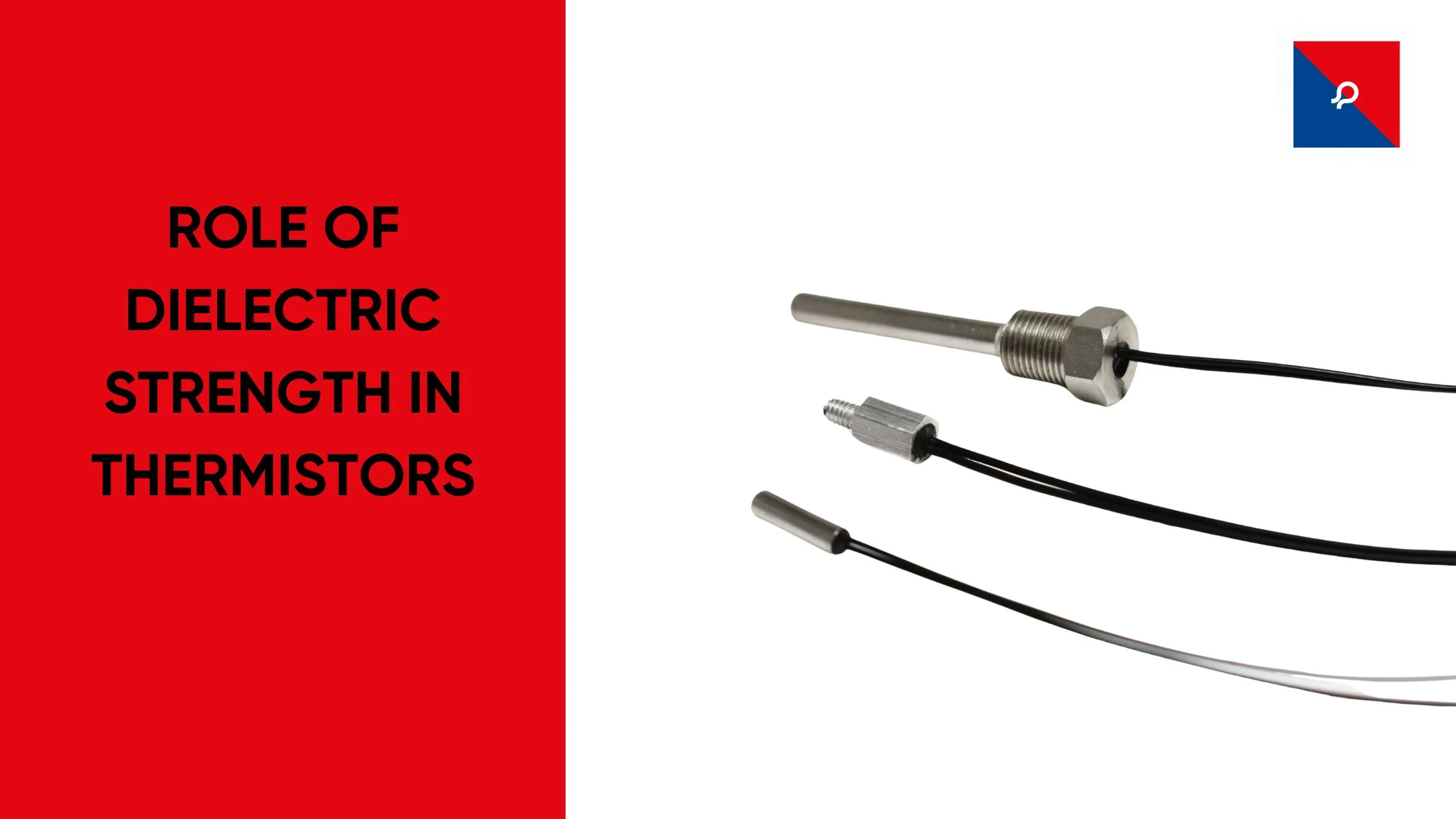
Unseen Power: Dielectric Strength In Electrical Systems And Thermistors
Unseen Power: Dielectric Strength In Electrical Systems And Thermistors

Have you ever thought about what keeps electrical systems safer and working so smoothly? Well, it’s not only the wires or the equipment. There’s something called the dielectric strength that helps in this. Sounds tricky, right? Don't worry, we’ll break it down. Let’s see what is dielectric strength and also why it matters in our everyday lives.
Simply said, dielectric strength is a material's capacity to withstand electrical stress without breaking down. Imagine an umbrella protecting you from the intense rain. Dielectric strength operates in the same manner in electrical systems. It retains the present current strength where it should be. If the material cannot withstand the stress, electricity will flow where it should not, resulting in electrical shocks or device failure. Power cables and thermistors depend on dielectric strength to guarantee safer electric flow. Let's go deeper and figure out why this is important to understand.
What Is Dielectric Strength?
Think of dielectric strength as an essential component of electrical insulation. It is the highest possible electricity that a material may tolerate before failure. If this limit is reached, the material gives up and allows electricity to escape or flow. This can create hazardous conditions. So, having excellent dielectric strength in materials is similar to wearing solid footwear when hiking—you're less likely to slide!
Key things to know:
- Prevents electrical shocks- Dielectric materials act as insulators, keeping electricity from flowing where it should not.
- It keeps systems reliable- A strong dielectric reduces the possibility of unexpected failures in electrical equipment.
- It's important for safety - Without it, electrical systems would be unstable and also dangerous.
Why Does Dielectric Strength Matter?
Have you ever touched a device and felt a little jolt? That’s a sign of poor insulation. High dielectric strength in materials ensures such shocks don’t happen. Let’s see where it’s important:
1. In Everyday Appliances
Your fridge, washing machine, and even your phone depend on dielectric materials. These insulators make sure electricity doesn’t go where it’s not needed. Without them, appliances would break down quickly—or worse, become unsafe to use.
2. Power Systems
Dielectric strength ensures that electricity travels safely in power lines. It maintains the flow constant. Imagine electrical wires during a storm. They can withstand these circumstances due to the high dielectric strength of materials.
3. High-Voltage Equipment
Big machines like transformers and circuit breakers need good-quality insulation. Dielectric materials here ensure that heavy-duty systems run smoothly and don’t overheat and fail.
The Role of Dielectric Strength in Thermistors
Now, let’s talk about thermistors. These are small but powerful devices. They sense temperature changes. Thermistors are like the ‘mood rings’ of the electrical world. They respond to heat and adjust their resistance accordingly.
But what makes them reliable? Yes, dielectric strength! Here’s how:
- Ensures Sensitivity: A thermistor with good dielectric properties can detect even tiny temperature shifts accurately.
- Boosts Reliability: Whether it’s in your car or your AC, thermistors need to withstand electric stress. Dielectric strength ensures they don’t fail under pressure.
- Supports Versatility: Thermistors are used in healthcare, automotive, and home appliances. Strong insulation lets them adapt to these varied roles without issues.
Here are some everyday places where dielectric strength comes into play:
- In cars, thermistors check the temperatures of the battery and engine. They help your car operate well, no matter the weather.
- In medical devices, dielectric materials ensure that tools like thermometers and catheters give accurate readings.
- In electronics, stuff like laptops, TVs, and gaming consoles use the materials to keep from overheating and protect their parts.
Practical Tips for Everyday Users
- Check for Quality: When buying electrical devices, go for trusted brands. They’re more likely to use high-dielectric materials.
- Inspect Appliances: Look out for wear and tear in cords and also plugs. Damaged insulation means lower safety.
- Know the Signs: If a device overheats or gives shocks, stop using it immediately. This could mean poor insulation or material failure.
At JR Sensors, we know how important dielectric strength is for safe electrical systems. That’s why we make our thermistors and temperature sensors with care. We use top-notch materials so you can count on them to work well.
Conclusion
Dielectric strength may not be visible, but it’s everywhere. From charging your devices to keeping you safer, this current strength is really important. Thermistors, for example, rely on this to work well. So when you turn on a light or use any gadget, think about how dielectric strength keeps everything running so smoothly.
Curious about how electrical systems work? Stick around for more articles! If you have questions, leave a comment. Let’s chat!
Frequently Asked Questions
1. What is dielectric strength, and why is it critical?
2. How does dielectric strength affect electrical systems?
3. Why is dielectric strength crucial in thermistors?
4. How does JR Sensors incorporate dielectric strength in its products?
5. What are some real-life applications of dielectric strength?
6. What are common issues caused by poor dielectric strength?

Busbar Watchdogs: The Tiny Sensors Preventing Massive Power Failures
Think of them as your system’s early warning system. Busbar temperature sensors silently protect power grids, data centers, and switchboards from overheating, fire, and failure. Discover why this small sensor plays a big role in electrical safety and uptime.

Beyond Specs: 5 Must-Know Factors When Choosing a Thermistor Sensor Manufacturer
Not all thermistor manufacturers are created equal. Whether you're building a medical device or a smart appliance, this guide breaks down the 5 key factors that ensure you get precision, reliability, and peace of mind.

Burnt Biscuits? Blame the Sensor – The Hot Truth About Your Oven’s Temperature Troubles
If your oven’s cooking like it’s got a mind of its own, your temperature sensor might be the silent saboteur. From half-baked casseroles to scorched cookies, we break down how this little sensor works, why it matters, and how to fix it—without losing your cool (or your dinner). A fun, practical guide that’s just as useful as it is digestible.